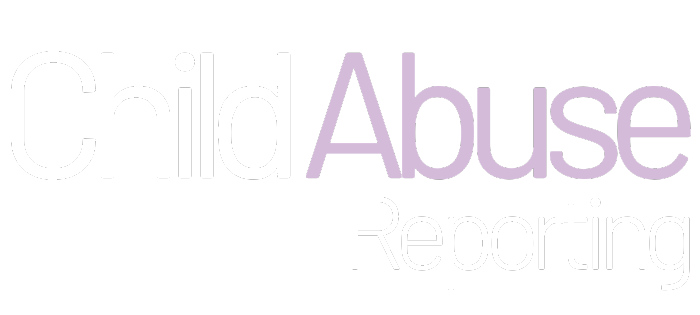style=”width: 650px; text-align: left;”>
Building Resilience to Toxic Stress
Everyone has experienced stress at some point in life. From work and parenting to politics and the pandemic—it’s unavoidable. But stress that begins in childhood can have a major impact on health and behavior outcomes.
In the 1990s, a landmark study was conducted on the biology of stress. It revealed the science behind Adverse Childhood Experiences (ACEs) and exposed the detrimental effects chronic stress can have on children’s developing brains. Ten toxic stress indicators were studied: physical abuse, sexual abuse, emotional abuse, physical neglect, emotional neglect, exposure to domestic violence, household substance abuse, household mental illness, parental separation or divorce, and incarcerated relative. Since the original study, two more indicators have been added: poverty and racism.
According to the CDC website on ACEs, an estimated 62% of adults surveyed across 23 states reported that they had experienced one adverse childhood experience in their youth. ACEs are linked to chronic health problems, mental illness, teen pregnancy, involvement in sex trafficking, and substance misuse in adulthood. Without positive influences in their lives, ACEs can also negatively impact a child’s self-regulation, relationships, education, and job opportunities.
Remove Judgment, Move Toward Healing
Amy Scheel-Jones has been working with trauma response systems for the past 20 years. She emphasizes that even though mandated reporters are finding out about abuse after it has occurred, there is still hope for affected children. “When we recognize vulnerability,” she says. “our response to trauma can wrap around a person and build resilience, lowering their risk (for negative outcomes).”
Scheel-Jones has been a Senior Consultant with Coordinated Care Services, Inc. (CCSI) since 2013. CCSI is a non-profit organization that provides an array of support services to education, health and human services departments, community-based organizations, and local and county governments throughout New York State. She also oversees the Consortium on Trauma, Illness and Grief in Schools (TIG), a collaborative crisis response network that serves participating districts in Monroe County and across neighboring regions. In her role with TIG, Scheel-Jones has organized training to change individual practice and systems. She has also provided technical assistance and crisis planning support to schools impacted by an array of crises such as car accidents, deaths due to homicide and suicide, and the impact of community violence.
In her experience, she believes that it’s important to remove any judgement in dealing with families struggling with ACEs. “People are doing the best they can,” notes Scheel-Jones. “As mandated reporters, we should focus on how to engage children, especially those who aren’t easy to engage. Healing happens in the context of relationship.”
Building Resilience, Breaking the Cycle of Adversity
CCSI was instrumental in adding 11 ACEs-based questions to the Monroe County dissemination of the Federal Youth Risk Behavior Survey in 2015. The resulting data has shown that a child who has experienced trauma can build resilience if they have even just one positive, caring and consistent adult in their lives, or if they feel valued by their community, or feel encouraged at school.
“It’s easier than you think to make a positive difference in a young person’s life,” says Scheel-Jones. Some examples she gives are knowing the names of each of your students, knowing details about their personal lives, and balancing accountability with understanding. “Even if we can’t take away what has happened to them,” she adds, “you’re putting tools in their toolbox simply by offering them a different relationship and view of themselves.”
Scheel-Jones cites the “7 Cs of Resilience” outlined by Kenneth Ginsburg, author and doctor of adolescent medicine: competence, confidence, connection, character, contribution, coping, and control. “Resilience is ordinary, not extraordinary,” she says, “but it can be undermined as easily as it can be enhanced.” By learning more about these C’s, caring adults can find ways to support the development of youth.
When we strengthen a child’s resilience, the cycle of adversity can be broken. No one’s life is stress-free, even high-functioning kids have a tipping point. It’s important to help all children develop these internal factors of resilience, to reach their full potential.
RESOURCES
ACEs Primer Video:
5 Core Ideas of Helping Traumatized Children Learn (Trauma-Sensitive Schools)
https://www.youtube.com/watch?v=G6BH0NDuj-E
New York State Center for School Health Resource on ACEs and Trauma Informed Care
CDC Resource on Preventing ACEs:
https://www.cdc.gov/violenceprevention/pdf/preventingACES.pdf
Building Resilience in Children and Teens by Kenneth Ginsburg
https://shop.aap.org/building-resilience-in-children-and-teens-4th-edition-paperback/
Join Our Webinar: Monroe County F.A.C.T. – Helping Parents Build Stronger Families
Family Access and Connection Team (FACT) is a strength-based assessment and referral program designed to support families experiencing difficulties with their children under the age of 18 exhibiting a pattern of troubling behaviors. Join us for a webinar featuring FACT officials talking about how the program works and how school districts can use FACT to intervene in cases of chronic truancy.
The webinar will be held February 25, 2021 at 3:30 p.m. Register here: https://www.dorightbykids.org/do-right-by-kids-webinars-for-mandated-reporters/
Foster Parents Needed
Have you ever considered becoming a foster parent? The need for foster parents is greater than it has ever been, and many mandated reporters have exactly the skills needed to give a kid in foster care the stable and loving home they so desperately need. Will you step up? To learn more, come to an information session. For dates and times, go to MonroeFosterCare.org
Definition:
Acts of Comission vs. Acts of Commission
- Act of Commission – Something that was done to the child by the parent/persons legally responsible for the child’s care.
- Act of Omission – Something that was not done for the child by the parent/person legally responsible for the child’s care.
View all previous newsletters in the archive.

